 On Monday, President Barack Obama expressed his support for strong Network Neutrality protections in the form of classifying ISPs under Title II. Soon after this, Senator Ted Cruz – a member of the Senate Subcommittee on Communications, Technology, and the Internet – tweeted the following:
On Monday, President Barack Obama expressed his support for strong Network Neutrality protections in the form of classifying ISPs under Title II. Soon after this, Senator Ted Cruz – a member of the Senate Subcommittee on Communications, Technology, and the Internet – tweeted the following:
This for me upset for many reasons. Mostly because it seemed like Senator Cruz was opposing Network Neutrality simply because President Obama supported it. In other words, he is basing his stance on political spite, not on actual understanding of the issues at hand. One of the problems is that the definition of Network Neutrality has gotten muddied with other gripes against cable ISPs and by repeated statements by opponents misstating the intent of Network Neutrality. Let’s first look at what Network Neutrality really means.
What Network Neutrality Is
In short, Network Neutrality means that two data requests of the same type will be treated the same. So if I request a video from YouTube, a second video from Netflix, and a third video from an online VOD service that my ISP runs, all three videos should download at the same speeds. Yes, there might be some variance due to the speeds of the originating server or whether a router along the way is slowing traffic down, but my ISP won’t intentionally make one service’s speed faster than another service of the same type.
This History of Network Neutrality
This is nothing new. In fact, this is how the Internet has been run since its inception. Recently, however, a few big ISPs decided that this needed to change. One impetus was that the ISPs saw that Internet companies were making a lot of money in a method that utilized the ISPs’ connections without directly paying the ISPs. One of the first to publicly state this was the then-CEO of AT&T, Ed Whitacre. He said that companies like Google, Yahoo!, and Vonage shouldn’t "use the pipes for free." Of course, this ignored that Internet companies pay their own ISPs for bandwidth. Those ISPs, in turn, either pay upstream ISPs or – if they are top-level ISPs – have peering agreements with other ISPs regarding payment for traffic flow. On the other side of the equation, customers pay the ISPs for access. The ISPs then either have peering agreements or pay upstream ISPs who do. Nobody is getting a free ride.
Ed Whitacre, wasn’t dissuaded, though. He wanted Internet companies to pay AT&T for the right to access AT&T’s customers while collecting money from their customers for the right to access the Internet companies’ websites. In other words, AT&T would get paid twice for the same traffic. This made as much sense as AT&T trying to charge a pizzeria for making money when AT&T customers phoned in orders because the pizzeria got their phone service from Verizon and not AT&T.
There was a second reason for this desire to get paid by Internet companies, though. As Internet video services such as Netflix began to take off, the ISPs – many of whom also provided cable TV service – felt threatened. If people could get all of their video entertainment from Netflix, YouTube, etc., why would they need to subscribe to cable? Some people figured this out and blazed a trail as cord cutters. The ISPs responded by calling for there to be a fast lane – for people who would pay for extra-special priority access – and a slow lane for everyone else. Internet video companies would need to pay this extra money or find their service unusable. Of course, this would raise the price of the service and thus would help to make the cable ISPs’ TV offerings seem better by comparison. In addition, the ISPs instituted service caps and overage fees. This was to keep people from being able to download too much video without needing to pay more. Again, using Internet video too much would make your bill go up so (they hoped) people would stop watching Internet video as "too expensive" and would go back to cable TV which didn’t have these restrictions.
What Network Neutrality Isn’t
Caps and overages are a bit of a detour, however. While a case might be made that applying them to one service (Internet video) while not applying them to another service that financially benefits the ISP (cable TV) is a neutrality issue, this isn’t the biggest complaint. That is reserved for the fast lanes – prioritizing one service over another based on payment.
But isn’t prioritization just good network management? Should ISPs be required by law to give an e-mail message the same priority as a video conference? Of course not. ISPs would be free to allow e-mail packets to slow down a bit while the video conferencing packets whizzed by. What the ISPs couldn’t do is make packets from one e-mail service slower than packets from another e-mail service or make one video conferencing service slower than another one. In other words, they couldn’t form fast lanes with toll access.
Another complaint is that Network Neutrality would legislate away the ISPs offering speed tiers. Currently, you can pay one amount for normal speed Internet access and pay more to get faster speeds. Wouldn’t Network Neutrality do away with this? Again, the answer is no. Remember, we aren’t measuring the speed of Netflix to me versus Netflix to you. We are measuring the speed of Netflix to you versus the speed of a competing video service to you. If I pay for faster speeds than you have, I’ll get Netflix faster than you would, but we would both get it at the same speeds as we would get any other video service (again, at least as far as the ISP can control).
Getting back to Senator Ted Cruz, is Network Neutrality Obamacare for the Internet. Well, I don’t want to get into a huge debate over Obamacare – its pros and cons, whether it should be kept as is, improved, or repealed entirely. So let’s just look at what Senator Cruz meant by his statement. For those opposed to Obamacare, the Affordable Care Act represented a government takeover of health care coverage. What was once decided by free market insurance companies, they contend, is now decided by big government agencies. Thus, Mr. Cruz is envisioning Network Neutrality as the government forcing ISPs into a course of action instead of letting the free market dictate what action they took.
There are two problems with this. First of all, there is no free market. Most places in the United States have only one or two wired broadband ISPs available to them. I only have one by me. If I don’t like this ISP’s actions or prices or caps, my options are to 1) stay with the ISP or 2) go without Internet. If I didn’t like my health care coverage, I could jump to a different insurer. Yes, you could argue about details like coverage levels and pricing, but insurance companies have competition in their marketplace. ISPs do not. Even Comcast’s CEO stated that they don’t compete with Time Warner Cable (who they want to merge with). At most, a cable ISP and a phone company ISP will share some territory. There is no true free market – only monopolies and duopolies. Under these conditions, the ISPs know they can do whatever they want without fear of punishment from their customers fleeing to the competition.
Secondly, Network Neutrality isn’t a government takeover of the ISPs. It is simply the government saying "you can’t play favorites and destroy the Internet just to make a bigger profit." We have regulations for a lot of things. Many of these regulations have good reasons behind them. We prevent food companies from just tossing whatever they want in their food (regardless of how edible it is) and claiming different ingredients on the label. We keep toy companies from marketing unsafe products. We prevent companies from marketing products as cures when there is no proof that it is one. In none of these cases is the government taking over the business and telling it what to do. The government is simply setting the boundaries. "You can market anything you want, but if you call your product a Cure For The Common Cold, be ready to back it up with hard data."
What Would Title II Do?
If the FCC classified ISPs under Title II of the Telecommunications Act, it would give them the legal authority to stop ISPs from slowing down competing services or from giving priority to services that pay the ISP extra. It is true that Title II usually comes with rate regulation components, but the government can exempt the ISPs from this portion while still holding them accountable for the rest.
Is Government Mandated Network Neutrality Ideal?
I’ll admit that I’m not the biggest fan of government mandated Network Neutrality. I do fear giving the government extra powers which might get twisted and abused later on. However, the ISPs refuse to "play nice" online and have repeatedly shown that they will do anything to wring more money from anyone and everyone they can – even if it means destroying the open playing field of the Internet to do so. We can’t count on the companies to police themselves and we can’t count on a "free market" to keep the companies in line. Customers can’t sue the ISPs to keep them in line since the ISPs’ legal departments would crush any individual with legal fees (or would just settle quietly to prevent a legal precedent from being set). The only entity capable of keeping the ISPs from abusing their monopoly/duopoly positions is the government. The government has a history of taking on monopolies to keep them from abusing their powers and hurting consumers.
Why Network Neutrality Shouldn’t Be Political
I get it. Small government advocates don’t want the government to expand. They don’t trust that the government won’t abuse any new powers they are given. I’m completely in agreement with this on many issues. (For example, allowing the NSA to spy on everyone with no warrant or oversight.) Unfortunately, the alternative of allowing the big ISPs to dictate exactly how the Internet is used isn’t a viable option either. Politicians from both sides of the aisle should recognize that this isn’t an issue of government attempting to seize scary new powers. It is an issue of the government trying to stop a monopoly (the ISPs) from trying to use their monopoly position (wired broadband Internet access) to boost the sales of another product with competition (cable TV). It is also a case of the monopoly (the ISPs) trying to interfere with their competition (Internet Video) by requiring said competition to pay the monopoly (fast lane access) or find their service unusable (slow lanes). Both parties should be in favor of protecting consumers – if only to try to attract more voters from the 3.9 million people who submitted comments in favor of Network Neutrality.
If checks and balances need to be enacted to prevent government overreach, so be it. However, don’t torpedo all Network Neutrality efforts simply because "the other party is in favor of it and so it must be icky."
NOTE: The computer image above is by DTRave and is available from OpenClipArt.org.
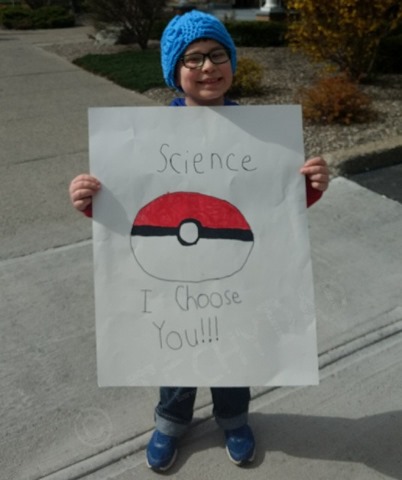



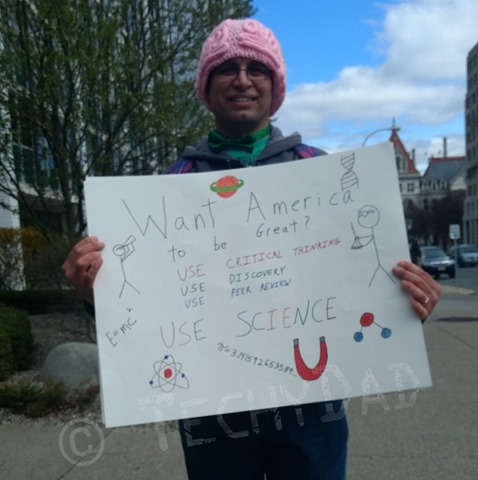


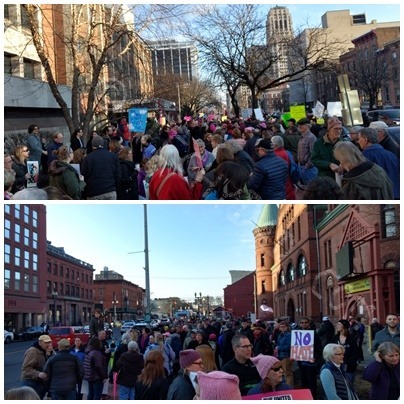
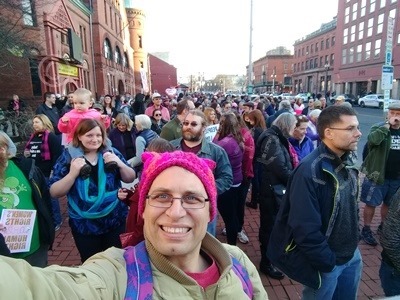


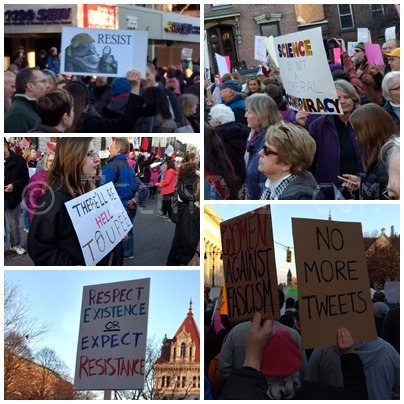

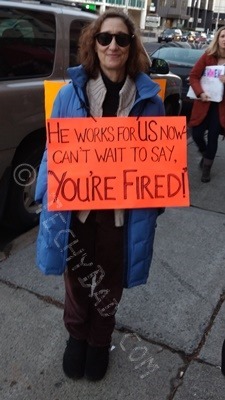




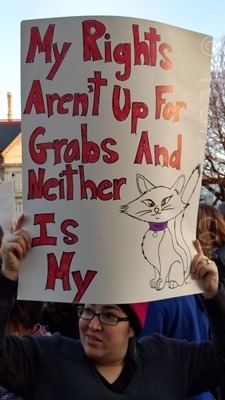
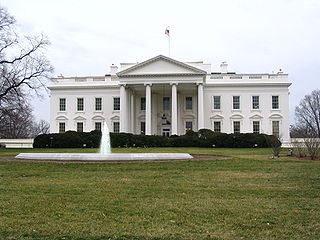
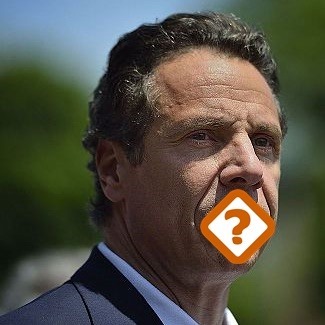 Recently, New York Governor Andrew Cuomo defended tying high stakes tests to teachers jobs. Instead of talking about any actual issues students and teachers face, Cuomo said: "We have teachers that have been found guilty of sexually abusing students who we can’t get out of the classroom." Yes, Governor Cuomo was claiming that, somehow, high stakes tests would expose teachers wrongdoings. I could talk about the inability of tests to measure teacher performance or how high stakes tests just lead to teaching to the test. I’ll address how high stakes don’t reveal inappropriate sexual relationships later in this post. Instead, right now, I’d like to address the root cause of this statement.
Recently, New York Governor Andrew Cuomo defended tying high stakes tests to teachers jobs. Instead of talking about any actual issues students and teachers face, Cuomo said: "We have teachers that have been found guilty of sexually abusing students who we can’t get out of the classroom." Yes, Governor Cuomo was claiming that, somehow, high stakes tests would expose teachers wrongdoings. I could talk about the inability of tests to measure teacher performance or how high stakes tests just lead to teaching to the test. I’ll address how high stakes don’t reveal inappropriate sexual relationships later in this post. Instead, right now, I’d like to address the root cause of this statement. On Monday, President Barack Obama expressed his support for strong Network Neutrality protections in the form of classifying ISPs under Title II. Soon after this, Senator Ted Cruz – a member of the Senate Subcommittee on Communications, Technology, and the Internet – tweeted the following:
On Monday, President Barack Obama expressed his support for strong Network Neutrality protections in the form of classifying ISPs under Title II. Soon after this, Senator Ted Cruz – a member of the Senate Subcommittee on Communications, Technology, and the Internet – tweeted the following: